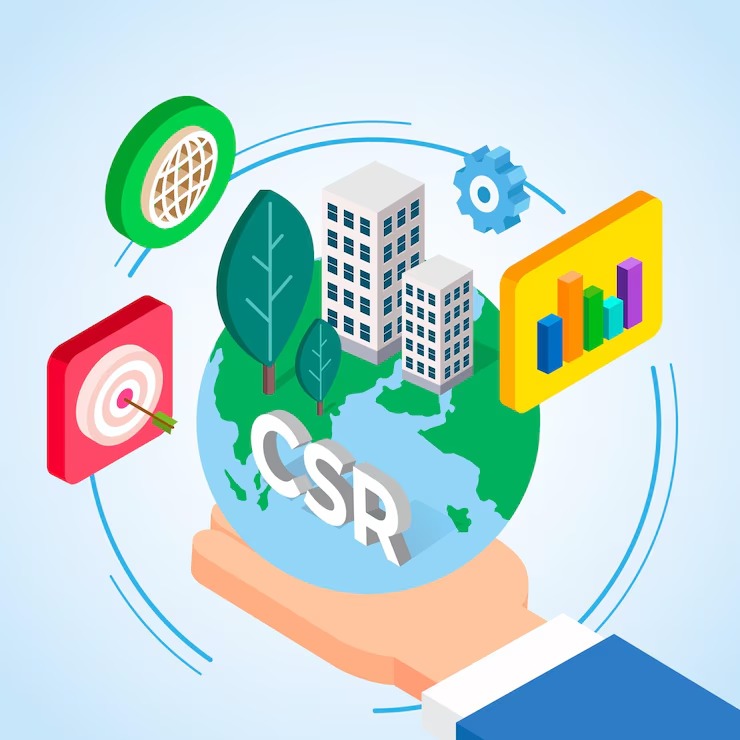Best Sustainability Reporting Software: A Complete Guide to Choosing the Right ESG Tool for Your Business

Understanding Sustainability Reporting and Its Importance
In the modern business landscape, sustainability is no longer an optional concept—it’s a core principle that defines responsible growth. Companies across industries are being held accountable not just for profits but for their environmental, social, and governance (ESG) impacts. This is where sustainability reporting comes into play. Sustainability reporting involves the disclosure of data related to a company’s ESG performance, which includes energy use, carbon emissions, social responsibility initiatives, diversity and inclusion efforts, and corporate governance practices. The goal is to communicate transparently with stakeholders, including investors, customers, regulators, and employees. As regulations tighten and public demand for transparency grows, companies are under increasing pressure to adopt accurate, reliable, and efficient best sustainability reporting software systems. This is where the best sustainability reporting software solutions become indispensable.
What Is Sustainability Reporting Software?
Sustainability reporting software is a digital tool or platform that helps organizations collect, manage, analyze, and report their ESG data. It automates complex data gathering processes, ensures compliance with international standards such as GRI, SASB, CDP, and TCFD, and generates comprehensive reports for both internal and external stakeholders. This software helps companies save time, reduce errors, increase data visibility, and enhance sustainability performance. The best sustainability reporting software goes beyond just compiling numbers—it offers insights, predictive analytics, and real-time dashboards to support proactive ESG decision-making.
Key Features of the Best Sustainability Reporting Software
When selecting a sustainability reporting solution, it’s important to evaluate the key features that define a high-quality tool. These features include automated data collection from multiple sources, customizable dashboards for real-time ESG tracking, integration with financial and operational systems, advanced analytics and forecasting, support for multiple reporting standards (GRI, CDP, SASB, etc.), audit trail and version control, secure cloud-based infrastructure, user-friendly interface for all stakeholders, and scalable architecture to accommodate growing sustainability initiatives. These features ensure that the software can adapt to your organization’s evolving ESG needs while maintaining accuracy, compliance, and ease of use.
Why You Need the Best Sustainability Reporting Software
In the age of transparency and accountability, companies need to do more than just act sustainably—they must also prove it with data. Using manual tools like spreadsheets or disconnected systems often leads to fragmented, outdated, or inaccurate ESG reports. The best sustainability reporting software streamlines the process, allowing companies to spend less time on data entry and more time on strategic analysis. It enables organizations to stay ahead of regulatory changes, meet investor demands, improve brand reputation, and identify areas for environmental and social improvement. In short, it’s an essential component of any responsible business strategy.
Top Benefits of Using Sustainability Reporting Software
There are numerous benefits to implementing high-quality sustainability reporting software. These include enhanced efficiency by automating manual processes and reducing human errors, improved accuracy and consistency in ESG data collection, real-time monitoring and alerts for proactive decision-making, streamlined compliance with global ESG reporting frameworks, improved stakeholder communication through clear and visual reports, better risk management through early detection of ESG issues, and data-driven insights that inform long-term sustainability goals. These advantages not only make ESG reporting simpler and more reliable but also enhance your company’s ability to drive real impact.
Top 10 Best Sustainability Reporting Software in 2025
With numerous platforms on the market, choosing the best sustainability reporting software can be a daunting task. Here’s a list of the top ten ESG software solutions in 2025 that are recognized for their innovation, usability, and reliability:
1. SpheraCloud
SpheraCloud offers an end-to-end ESG solution designed for large enterprises. It supports GRI, CDP, SASB, and TCFD standards and provides robust data analytics capabilities, real-time dashboards, and enterprise-grade compliance features. Its intuitive interface and scalable modules make it a leader in sustainability reporting.
2. Envizi by IBM
Envizi provides comprehensive ESG data management and reporting tools integrated with IBM’s AI technology. It excels in automating data collection, supporting audits, and generating compliance-ready reports. Its ability to analyze carbon footprint, water usage, and waste across complex supply chains is a key differentiator.
3. Workiva ESG
Workiva offers a flexible and collaborative platform that simplifies ESG data collection, analysis, and reporting. It’s widely praised for its integration with financial reporting systems and support for major disclosure frameworks. Its cloud-based system ensures security, scalability, and seamless collaboration.
4. Intelex ESG Management
Intelex is known for its strong compliance and sustainability features, particularly in industries like manufacturing and energy. It supports real-time ESG tracking, risk assessments, and automated reporting. Its analytics engine helps companies identify trends and benchmark performance effectively.
5. Novisto
Novisto is a data-first ESG platform that focuses on data integrity and audit-readiness. It’s tailored for companies preparing for ESG disclosures to regulators, investors, and other stakeholders. Its user-centric design and AI-powered features make sustainability reporting more actionable and intelligent.
6. Diligent ESG
Diligent offers a powerful ESG reporting module integrated with governance and risk platforms. It provides advanced analytics, peer benchmarking, and board-ready reporting templates. It’s ideal for companies that prioritize transparency, accountability, and stakeholder communication.
7. Cority Sustainability Cloud
Cority delivers ESG and EHS capabilities in one integrated platform. It allows businesses to track environmental data, assess performance, and report across multiple frameworks. Its modular approach allows businesses to scale their ESG reporting as they grow.
8. Measurabl
Measurabl is a popular choice in the real estate and property sectors for ESG data automation and sustainability performance tracking. It connects directly to utility providers and building management systems to provide accurate, real-time data.
9. Ecochain Helix
Ecochain Helix is known for its life cycle assessment and environmental footprint analysis. It’s ideal for companies in manufacturing and production sectors aiming to reduce their environmental impact. Its visual tools help teams make product-level sustainability decisions.
10. FigBytes
FigBytes offers an all-in-one ESG strategy and reporting platform. It connects ESG goals with real-time data, enabling businesses to monitor progress and communicate it effectively. Its narrative-based approach makes sustainability reports more engaging and meaningful.
How to Choose the Best Sustainability Reporting Software for Your Organization
Every business has unique sustainability needs based on its industry, size, regulatory environment, and ESG goals. To choose the best sustainability reporting software, consider the following steps:
Assess Your ESG Goals – Define what you want to achieve with sustainability reporting. Is your focus on carbon neutrality, regulatory compliance, or investor transparency?
Evaluate Integration Capabilities – Make sure the software can integrate with your existing ERP, HR, supply chain, and financial systems.
Check Framework Support – Look for software that supports global reporting standards relevant to your industry, like GRI, CDP, SASB, TCFD, and the EU CSRD.
Prioritize Usability and Accessibility – Choose a user-friendly platform that allows both ESG experts and non-technical stakeholders to navigate and contribute.
Consider Scalability – Your sustainability efforts will grow over time. Ensure the software can handle increasing complexity and new regulatory requirements.
Request a Demo and Trial – Most vendors offer live demos and trial versions. Use this opportunity to test the software’s capabilities and see how it fits with your organization’s workflow.
Look for Strong Vendor Support – Choose a vendor that offers onboarding, training, and ongoing support to maximize the value of your investment.
Common Challenges in ESG Reporting and How Software Solves Them
Organizations face several challenges when it comes to ESG reporting, such as inconsistent data sources, lack of internal expertise, rapidly evolving regulations, and stakeholder pressure for transparency. The best sustainability reporting software addresses these challenges through centralized data collection, automation of compliance reporting, educational tools for internal teams, and real-time dashboards that highlight key performance indicators. This not only simplifies ESG reporting but transforms it into a competitive advantage.
Trends Shaping the Future of Sustainability Reporting Software
Sustainability reporting is evolving rapidly in response to regulatory, technological, and societal shifts. Some key trends to watch include AI and machine learning integration for predictive ESG analysis, blockchain-based verification of ESG data, increased focus on supply chain sustainability tracking, integration of climate risk and financial modeling, and automated ESG assurance and audit capabilities. The best sustainability reporting software platforms are embracing these trends to deliver even greater value, accuracy, and strategic insights.
Sustainability Reporting and Regulatory Compliance
Regulatory requirements around sustainability reporting are becoming more stringent. In the EU, the Corporate Sustainability Reporting Directive (CSRD) mandates standardized ESG disclosures. The SEC in the U.S. is also moving toward climate-related disclosure rules. Companies that use advanced ESG reporting software are better equipped to respond to these requirements in a timely and accurate manner. These platforms provide compliance-ready templates, audit trails, and version history to ensure that reporting meets legal and ethical standards.
Impact on Brand Reputation and Investor Relations
Investors and customers are increasingly prioritizing companies that demonstrate genuine sustainability efforts. By adopting the best sustainability reporting software, businesses can present verifiable, transparent, and trustworthy ESG data. This builds confidence with investors, enhances brand reputation, and improves employee and customer loyalty. In a world where greenwashing is heavily scrutinized, data-backed sustainability reporting is the gold standard for credibility.
Conclusion: Investing in the Best Sustainability Reporting Software is a Strategic Imperative
As the world continues to confront climate change, inequality, and governance issues, sustainability has become an indispensable part of corporate strategy. Reporting your ESG data accurately, efficiently, and transparently is not just a compliance exercise—it’s a business imperative. The best sustainability reporting software helps you turn ESG data into actionable insights, ensures regulatory compliance, enhances transparency, and supports long-term sustainable growth. Whether you’re a global enterprise or a growing business, choosing the right software can elevate your sustainability journey from good intentions to measurable impact. Investing in the best sustainability reporting software today is investing in a better future for your company—and the planet.


